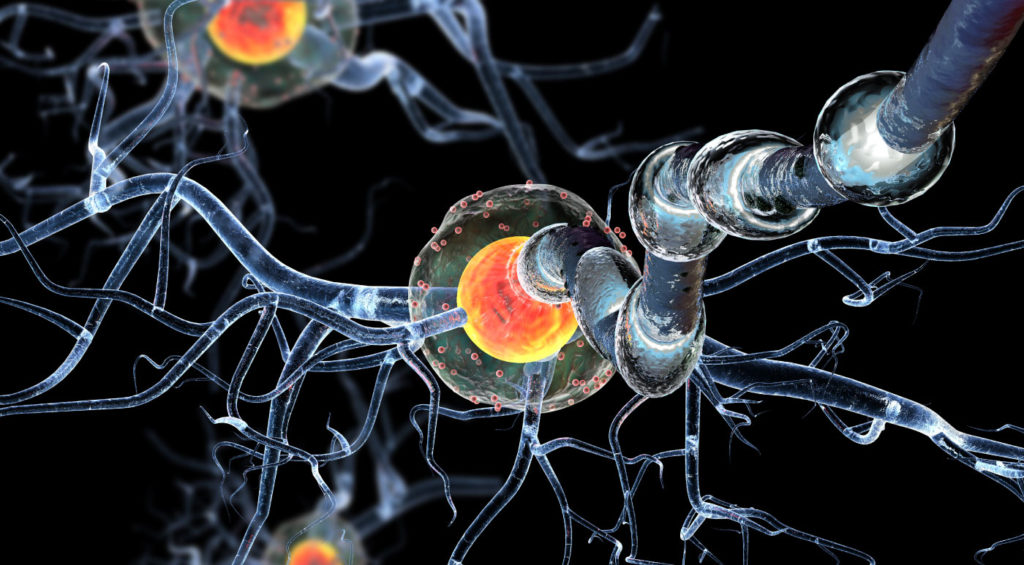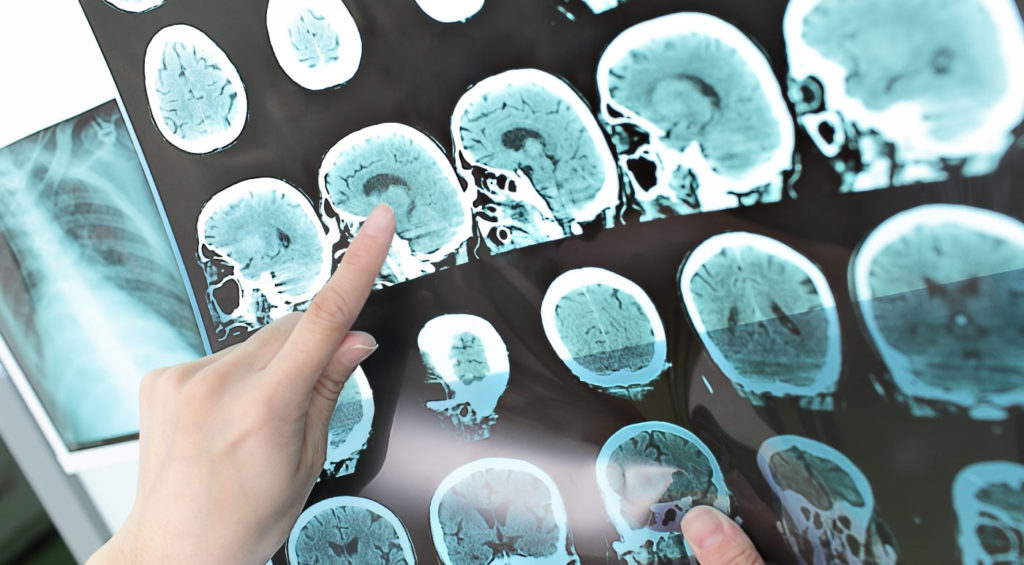
Multiple sclerosis, commonly known as MS, means multiple scars. It is a disabling medical condition that affects the central nervous system and causes numerous symptoms in people who have it. People with MS experience difficulties in their everyday lives, and it can significantly lower their quality of life.
Although there have been advancements in MS therapies, we are yet to find any conventional treatments that halt the disease process itself. As a result, many MS patients are turning to alternative therapies to address their symptoms, such as using CBD for MS.
Table of Contents
- CBD for MS: Just the Facts
- What is MS?
- CBD for MS
- What the Research Says on CBD for MS
- A Summary of What the Research Says
- Is it Legal to Use Cannabis Products in the United States?
- Final Thoughts on Using CBD for MS
CBD for MS: Just the Facts
Multiple sclerosis is an autoimmune condition that affects the central nervous system. The symptoms of MS are unpredictable, and there are few effective treatments that halt the disease’s progression. Many MS patients report using medical marijuana and CBD products to help with their symptoms. Research on this topic is just beginning, but it appears promising—especially for helping relieve muscle spasms, anxiety, and inflammation.
What is MS?
Multiple sclerosis is a complex medical condition with various symptoms. It causes demyelination of the brain and spinal cord’s neurons. In other words, the protective fatty layer of the neurons breaks down. As a result, this disrupts the brain’s ability to properly send signals to other parts of the body.
The symptoms of MS vary from person to person. They can change over time, as well as fluctuate in severity. In short, MS can be an unpredictable condition.
Common Symptoms of MS Include:
- Pain
- Vision changes, including temporary vision loss
- Muscle spasms
- Numbness and tingling
- Bowel issues
- Fatigue
- Issues walking
- Bladder issues
- Dizziness/vertigo
- Inflammation
- Emotional changes, such as depression or anxiety
With MS, it is common to have periods of symptoms worsening and periods of symptoms reducing in their severity. This is referred to as relapsing-remitting MS. However, MS symptoms can also steadily worsen, with no periods of improvement, which is known as progressive MS.
What Causes MS?

Currently, we do not know why people develop MS. However, MS is thought to be caused by a malfunction in the body’s immune system. When the immune system attacks areas of the body, this is referred to as an autoimmune condition. Some known risk factors include:
- Being female
- Low vitamin D
- Certain infections, such as Epstein-Barr virus
- Smoking
- Family history
Current Conventional Therapies for MS
There is currently no cure for MS, but there are treatments aimed at helping with MS symptoms. Many of the medications that are prescribed to MS patients address inflammation levels and the immune system. For instance, corticosteroids are commonly prescribed for people who suffer with this condition. Corticosteroids suppress the immune system as well as reduce inflammation.
CBD for MS
There are many reports of people who claim that using CBD or marijuana has helped them with their anxiety, sleep, and pain levels.
A survey from the National Multiple Sclerosis Society found that 66% of people with MS reported using cannabis products for symptom control.
Due to the legality status of the cannabis plant, there has not been much research on medical marijuana or CBD oil until recently.
What is CBD?
Cannabidiol, or CBD, is derived from the industrial hemp plant, which is a type of cannabis sativa plant. The marijuana plant is also a type of cannabis plant; however, there are significant differences between the two.
The marijuana plant contains CBD as well as high levels of tetrahydrocannabinol (THC), which has psychoactive effects and is responsible for making users feel “high.” The industrial hemp plant, which CBD products are derived from, contains minimal THC. What’s more, many CBD products undergo additional processing to remove any remaining THC.
What the Research Says on CBD for MS

Currently, the research on using CBD for MS is limited. However, there have been clinical studies on using whole-cannabis plant products in regards to treatments for MS. In addition, CBD has been studied for its anti-inflammatory effects through the endocannabinoid system. Since inflammation is a significant aspect of MS, this is an important avenue to explore.
The Endocannabinoid System
The endocannabinoid system is a complex network of receptors found our brains and throughout our bodies. It has received lots of attention due to its effect on emotions, pain, inflammation levels, and more. This system is made up of cannabinoid receptors, including CB1 and CB2 receptors. When these receptors are stimulated, the result is a decrease in inflammation levels, pain, and anxiety.
CBD contains cannabinoids, including anandamide, which activates the endocannabinoid system. It has been shown to decrease inflammation, pain levels, and anxiety in clinical studies. Given that MS patients tend to experience many of these symptoms, CBD may be useful in helping manage them.
Muscle Spasms
The American Academy of Neurology states that the use of oral cannabis extract and synthetic THC improves spasticity and pain in patients with MS.
A clinical trial published in the Neurology, Neurosurgery, Psychiatry Journal looked at the effect of medical cannabis products on muscle spasticity in MS patients over a 15-week period. Trial participants were given either a THC extract, a whole-cannabis extract containing both THC and CBD, or a placebo. Both the THC group and the whole-cannabis plant group felt that their spasticity improved. However, objective tests of spasticity found significant improvements in the THC group only.
The results of this study call for further investigation into both CBD as well as cannabis products containing both CBD and THC.
Bladder Symptoms
Nabiximols, or Sativex, is a whole-cannabis plant extract that has been used in multiple clinical studies. Emerging research has supported that Sativex is likely effective in reducing bladder symptoms, such as overactive bladder, which is often experienced with MS.
A Summary of What the Research Says

To date, there are few research studies on using CBD for MS.
There is research to support that CBD helps with anxiety, inflammation, and sleep via the endocannabinoid system. Since it is common for MS patients to experience these symptoms, there is potential for CBD to be useful in improving them.
Studies support that THC helps with muscle spasticity.
It is still unclear as to whether CBD alone, THC alone, or whole-cannabis plant products with CBD and THC are the most effective for reducing MS symptoms such as muscle spasms. More research is needed.
The whole-cannabis plant product Sativex has been shown to help with bladder symptoms in MS.
In short, more clinical trials are needed on both CBD as well as THC to determine if these cannabis plant products have a place in alleviating symptoms in MS.
Is it Legal to Use Cannabis Products in the United States?
Cannabis, otherwise known as marijuana, is currently legal in 29 states for the treatment of specific medical conditions, including MS. However, cannabis is still illegal at the federal level due to its THC content.
CBD products, which contain little to no THC, are federally legal all across the United States, and can be found in many forms, including tinctures, edibles, and lotions.
Currently, the Federal Food and Drug Administration (FDA) does not regulate CBD products. Independent studies have shown that the amount of CBD in CBD products often differs from the amount listed on the label. In addition, small amounts (legal limits) of THC are found in many CBD products. There are some CBD products, however, that have the THC completely removed. These are called CBD isolates.
Until CBD products are more strictly regulated, third-party testing assesses both CBD and THC levels. It’s a good idea to use a reputable resource, like this one, to find high-quality CBD products.
The Safety of CBD

CBD is considered to be very safe even at high dosages. Some people do experience mild to moderate side effects; however, there is no known risk of overdosing on CBD.
CBD has even been approved for use by children with seizures The FDA has approved a CBD product, Epidolex, for certain types of seizures.
Some of the side effects people may experience with CBD use include:
- Dry mouth
- Diarrhea
- Reduced appetite
- Drowsiness and fatigue
CBD may interact with other medications; therefore, you should always speak with your doctor before making any changes to your health regime.
Final Thoughts on Using CBD for MS
Living with multiple sclerosis can severely disrupt your quality of life, and there are not currently many effective treatments for this medical condition.
Some people with MS report that using CBD and medical cannabis to address their symptoms is helpful for them. Early research indicates that CBD and medical marijuana may have a place in MS symptom management. Remember, though, always speak with your doctor about your options, including cannabis products, before making any changes.
If you do choose to purchase CBD products, always look for third-party testing to ensure the quality and safety of the product.
